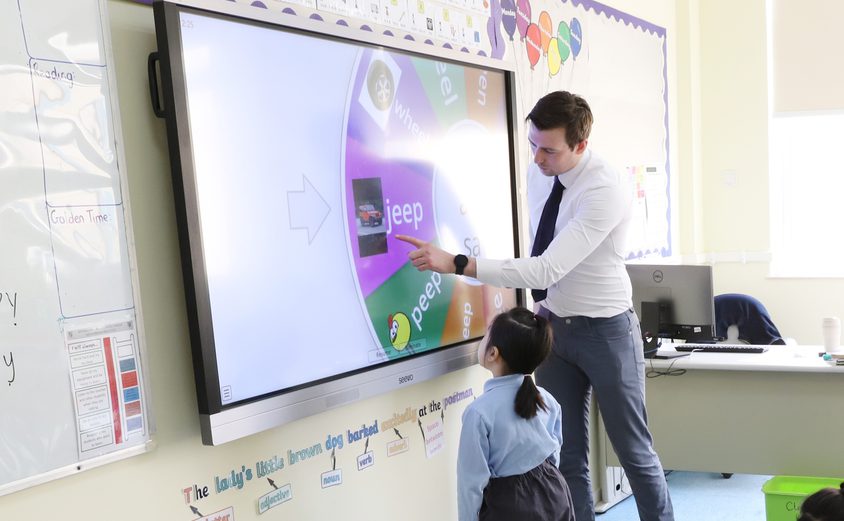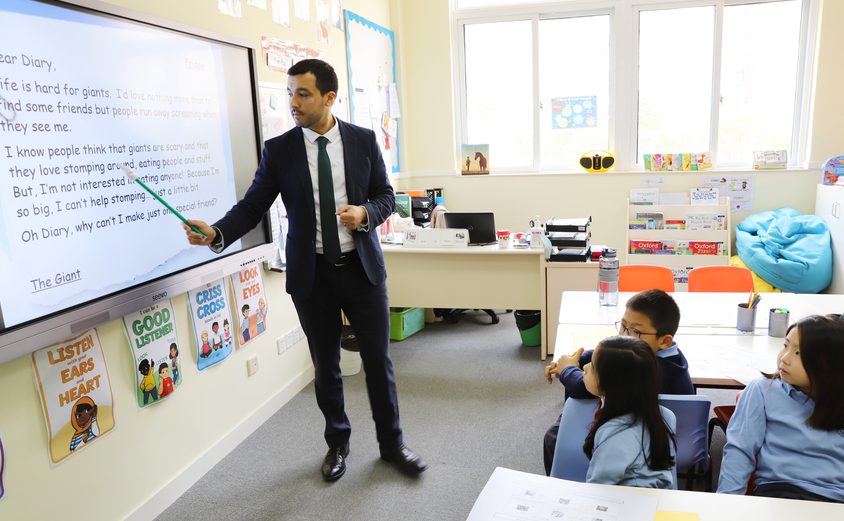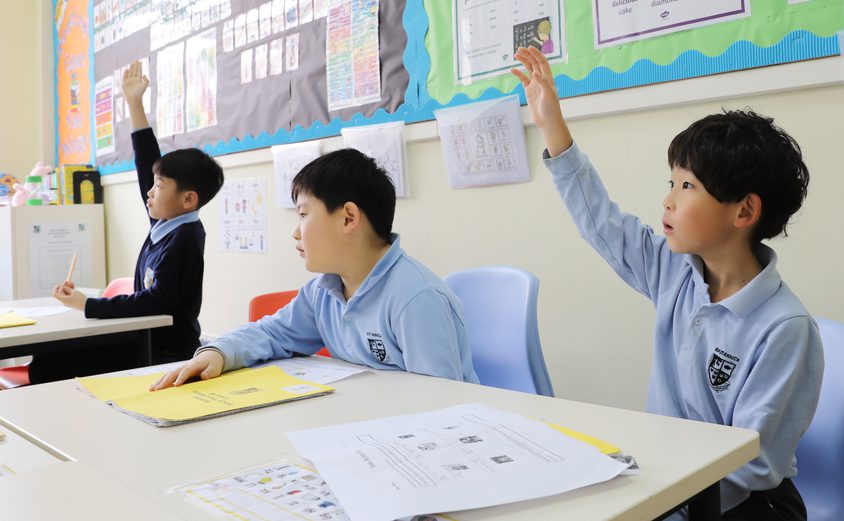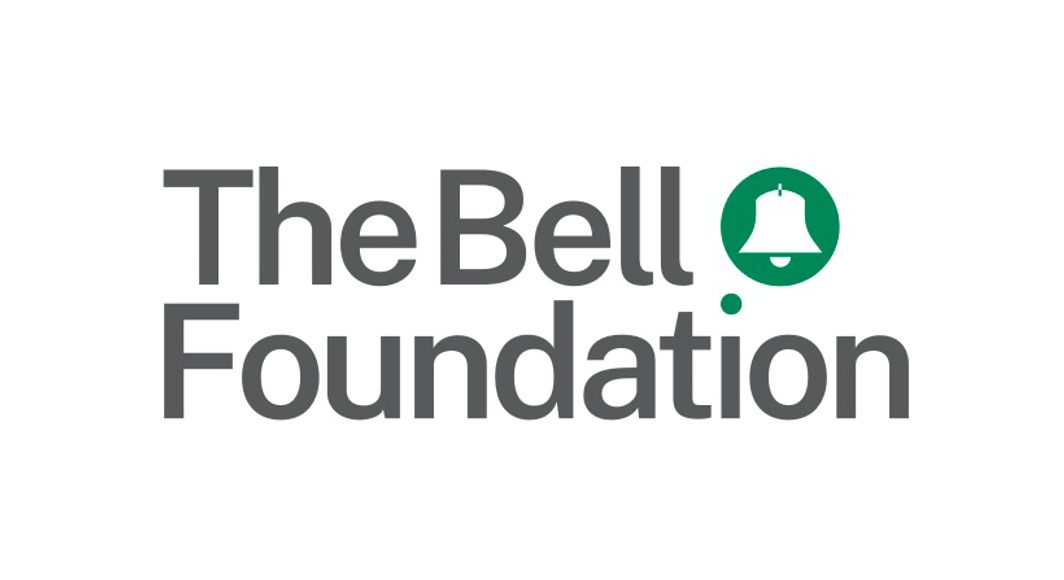We are proud to announce that following a lengthy and rigorous process Britannica’s English as an Additional Language (EAL) provision has been fully accredited through the Language for Results International (LFRI) accreditation scheme.
‘The evidence provided demonstrates careful and effective lesson planning. The lesson plans include stretch and challenge for high achievers, differentiation, scaffolding for those pupils using EAL who need it, and extension tasks for fast finishers. The lesson materials are logically and pedagogically sequenced, give pupils a clear sense of direction through the use of learning intentions (expressed as WALT statements) and make use of models, worked examples and helpful prompts, such as substitution tables, word mats, writing frames and text planners to scaffold learning.’
Bell Foundation
What is Language for Results International?
Language for Results International, provided by the Bell Foundation, is an evidence-informed programme designed and tailored specifically to the context and needs of international schools. The programme offers a suite of educational resources, award winning assessment framework, tools and professional learning opportunities as well as a whole school accreditation scheme.
The programme has been adapted from ‘Language for Results, which is a core part of The Bell Foundation’s evidence-informed and highly regarded EAL Programme for UK schools.
The cornerstone of the programme is the EAL assessment framework, which was developed together with academics from King’s College London and the University of Cambridge. The Framework equips schools with an evidence-informed tool enabling them to accurately evaluate the English proficiency of learners using EAL.
What does it mean to be a LFRI accredited school?
The Language for Results International accreditation mark highlights the educational quality and pro-active approach to professional development at Britannica International School, Shanghai. This accreditation offers many benefits to our current and prospective students. The quality mark identifies the strengths of the EAL provision offered and ensures that appropriate assessment strategies, planning and methodologies are in place to best meet the language and learning needs of our students. The feedback in the accreditation report noted the robust nature of the EAL practices and the policies. LFRI remarked that the policy ‘uses the most recent and best available evidence regarding the time it takes pupils who use EAL to transition from new to English to competent and fluent in English, inclusive approaches (including integration in mainstream lessons), and EAL assessment.’
Feedback from the accreditation process has also highlighted the inclusive values at Britannica, where cultural and linguistic diversity is celebrated and showcased to the school community through our many whole-school events. Our World Languages, Internationalism programmes and overall development of students plurilingual identities were also emphasized among the schools’ strengths.
Why is it important?
Over the past year and a half, we have been working closely with the Bell Foundation to ensure our staff have access to valuable professional development, provided by experts in the field of language acquisition. This ensures our staff are well-equipped with the knowledge and expertise to meet the needs of our diverse learners.
At Britannica, we are committed to providing high quality instruction and delivering the highest standards of education for all our students. We opted to volunteer for accreditation through the Language for Results International accreditation scheme as we recognise the benefits of external agencies evaluating and assessing the quality of our provision. We want to demonstrate accountability and ensure our school community can feel secure in the knowledge that our EAL provision meets recognised standards. Additionally, accreditation provides scope for review of our provision and enables our school leaders and Head of EAL to develop a clear vision for the development and further advancement of EAL provision.
We are truly delighted to be able to add this accreditation to our list of achievements next to our CIS and COBIS accreditations. The accreditation is a further testament to the enriching and holistic education offered at Britannica International School Shanghai where all students are supported in both their personal and academic development.






We are proud to announce that following a lengthy and rigorous process Britannica’s English as an Additional Language (EAL) provision has been fully accredited through the Language for Results International (LFRI) accreditation scheme.
‘The evidence provided demonstrates careful and effective lesson planning. The lesson plans include stretch and challenge for high achievers, differentiation, scaffolding for those pupils using EAL who need it, and extension tasks for fast finishers. The lesson materials are logically and pedagogically sequenced, give pupils a clear sense of direction through the use of learning intentions (expressed as WALT statements) and make use of models, worked examples and helpful prompts, such as substitution tables, word mats, writing frames and text planners to scaffold learning.’
Bell Foundation
What is Language for Results International?
Language for Results International, provided by the Bell Foundation, is an evidence-informed programme designed and tailored specifically to the context and needs of international schools. The programme offers a suite of educational resources, award winning assessment framework, tools and professional learning opportunities as well as a whole school accreditation scheme.
The programme has been adapted from ‘Language for Results, which is a core part of The Bell Foundation’s evidence-informed and highly regarded EAL Programme for UK schools.
The cornerstone of the programme is the EAL assessment framework, which was developed together with academics from King’s College London and the University of Cambridge. The Framework equips schools with an evidence-informed tool enabling them to accurately evaluate the English proficiency of learners using EAL.
What does it mean to be a LFRI accredited school?
The Language for Results International accreditation mark highlights the educational quality and pro-active approach to professional development at Britannica International School, Shanghai. This accreditation offers many benefits to our current and prospective students. The quality mark identifies the strengths of the EAL provision offered and ensures that appropriate assessment strategies, planning and methodologies are in place to best meet the language and learning needs of our students. The feedback in the accreditation report noted the robust nature of the EAL practices and the policies. LFRI remarked that the policy ‘uses the most recent and best available evidence regarding the time it takes pupils who use EAL to transition from new to English to competent and fluent in English, inclusive approaches (including integration in mainstream lessons), and EAL assessment.’
Feedback from the accreditation process has also highlighted the inclusive values at Britannica, where cultural and linguistic diversity is celebrated and showcased to the school community through our many whole-school events. Our World Languages, Internationalism programmes and overall development of students plurilingual identities were also emphasized among the schools’ strengths.
Why is it important?
Over the past year and a half, we have been working closely with the Bell Foundation to ensure our staff have access to valuable professional development, provided by experts in the field of language acquisition. This ensures our staff are well-equipped with the knowledge and expertise to meet the needs of our diverse learners.
At Britannica, we are committed to providing high quality instruction and delivering the highest standards of education for all our students. We opted to volunteer for accreditation through the Language for Results International accreditation scheme as we recognise the benefits of external agencies evaluating and assessing the quality of our provision. We want to demonstrate accountability and ensure our school community can feel secure in the knowledge that our EAL provision meets recognised standards. Additionally, accreditation provides scope for review of our provision and enables our school leaders and Head of EAL to develop a clear vision for the development and further advancement of EAL provision.
We are truly delighted to be able to add this accreditation to our list of achievements next to our CIS and COBIS accreditations. The accreditation is a further testament to the enriching and holistic education offered at Britannica International School Shanghai where all students are supported in both their personal and academic development.




